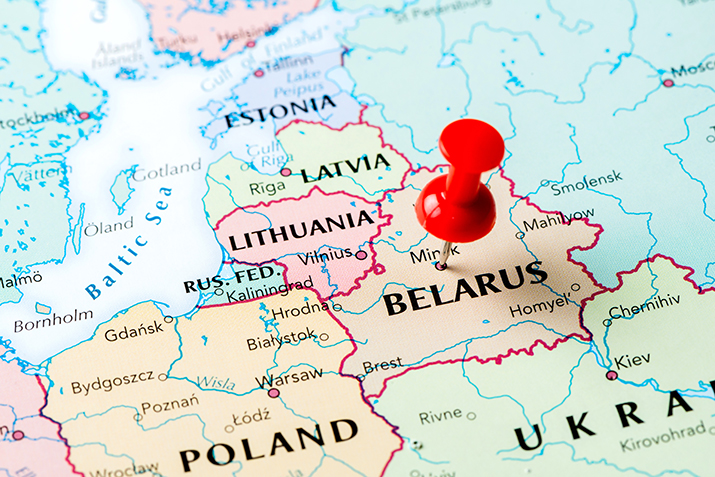HAPPENING AT THE COUNCIL OF EUROPE
REGULAR DIALOGUE WITH DEMOCRATIC OPPOSITION FORCES
In democratic countries, entering the lists that parties present to voters is a coveted goal. Some places have no vote and are governed by various kinds of monarchs. But there are also nations where the mere act of running as candidate is an act of courage. One of these is Belarus, ruled continuously since 1994 by the same president, Aljaksandr Lukašėnka, strongly supported by Moscow and practically immovable. After the invasion of Ukraine, the strongman of Minsk obviously sided with Putin, suffering substantial economic sanctions and suspending all relations with the Council of Europe.
In 2020 a vote was taken in this Eastern European state which is a kind of crossroads bordering to the west with Poland and Lithuania, to the east with Russia, to the south with Ukraine and to the north with Latvia. The result was what everyone expected: Lukašėnka was confirmed at the helm of the country. The opposition denounced serious fraud, and this too was expected. Opposition candidate Sviatlana Tsikhanouskaya had to flee to Lithuania before moving to Poland where she is working for a non-violent transition leading to real democracy in Minsk.
The electoral outcome has not been recognized by the countries of the European Union, but so far, this position from Brussels has not led to concrete results. A first step, however, has just been taken by the Council of Europe’s Committee of Ministers, which has decided to hold regular dialogue with representatives of the Belarusian democratic opposition forces.
After the disputed elections that saw the reconfirmation of President Lukašėnka, opposition leader Sviatlana Tsikhanouskaya had to leave the country
The commitment was made following a fruitful exchange of views between the representatives of Strasbourg and Tsikhanouskaya on 6 July. The organization invited the Secretary General, Marija Pejčinović Burić, to set up a "Contact Group" in cooperation with representatives of Belarusian democratic forces and civil society. This Group will submit regular reports on its activities.
The Chair of the Committee of Ministers, Irish Minister for Foreign Affairs Simon Coveney, said that «in the framework of its rotating presidency, Ireland has prioritised institutional support for those who wish to build a democratic and free Belarus, one that will work with its European partners to protect human rights and promote the rule of law». Such a decision, he added, «allows this mobilization to be carried out in a more systematic way». Tsikhanouskaya echoed him, stressing that the decision just taken «will ensure more Council of Europe in Belarus and more Belarus in the Council of Europe».







